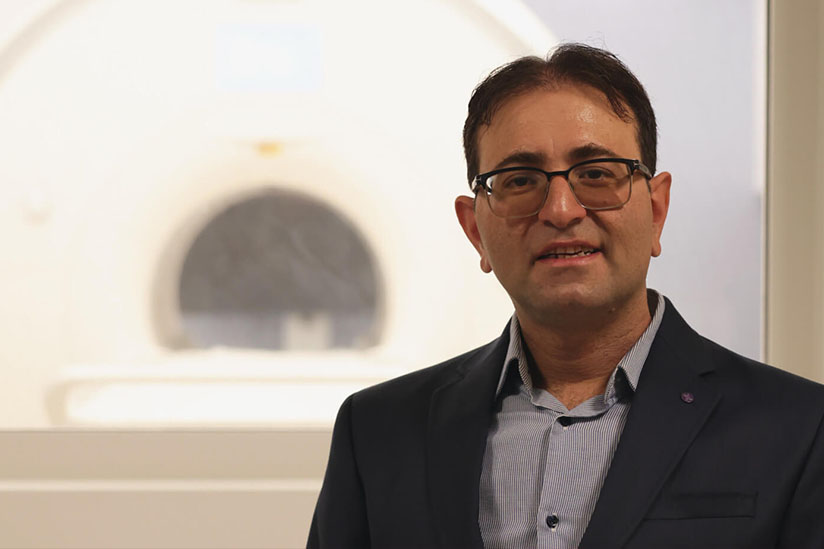$2.4 million grant will be used to develop new AI-powered algorithms that could lessen the need for higher-strength MRI machines and correct for various imaging artifacts.
What if you wanted to create vivid, professional-quality photos, but all you had at your disposal was your old, four-generations-ago smartphone? That’s basically the kind of imaging problems Mahdi Soltanolkotabi is working on. Except the pictures he reconstructs could alleviate suffering for patients with uncommon nerve disorders.
Soltanolkotabi, an associate professor of electrical and computer engineering, computer science, and industrial and systems engineering, is among the recipients of the National Institutes of Health Director’s New Innovator Awards announced Tuesday. The $2.4 million research grant is part of the NIH’s High-Risk, High-Reward Research program “to support highly innovative scientists who propose visionary and broadly impactful behavioral and biomedical research projects.” The last ECE recipient of the prestigious award was Maryam Shanechi in 2020.
Soltanolkotabi’s project develops new algorithms powered by artificial intelligence to augment scans produced by magnetic resonance imaging (MRI) machines to improve their resolution. The goal is to take scans made by “low-field” machines and build them into higher-quality images so they can be of the most use to radiologists interpreting the exams.
What if you wanted to create vivid, professional-quality photos, but all you had at your disposal was your old, four-generations-ago smartphone? That’s basically the kind of imaging problems Mahdi Soltanolkotabi is working on. Except the pictures he reconstructs could alleviate suffering for patients with uncommon nerve disorders.
Soltanolkotabi, an associate professor of electrical and computer engineering, computer science, and industrial and systems engineering, is among the recipients of the National Institutes of Health Director’s New Innovator Awards announced Tuesday. The $2.4 million research grant is part of the NIH’s High-Risk, High-Reward Research program “to support highly innovative scientists who propose visionary and broadly impactful behavioral and biomedical research projects.” The last ECE recipient of the prestigious award was Maryam Shanechi in 2020.
Soltanolkotabi’s project develops new algorithms powered by artificial intelligence to augment scans produced by magnetic resonance imaging (MRI) machines to improve their resolution. The goal is to take scans made by “low-field” machines and build them into higher-quality images so they can be of the most use to radiologists interpreting the exams.
